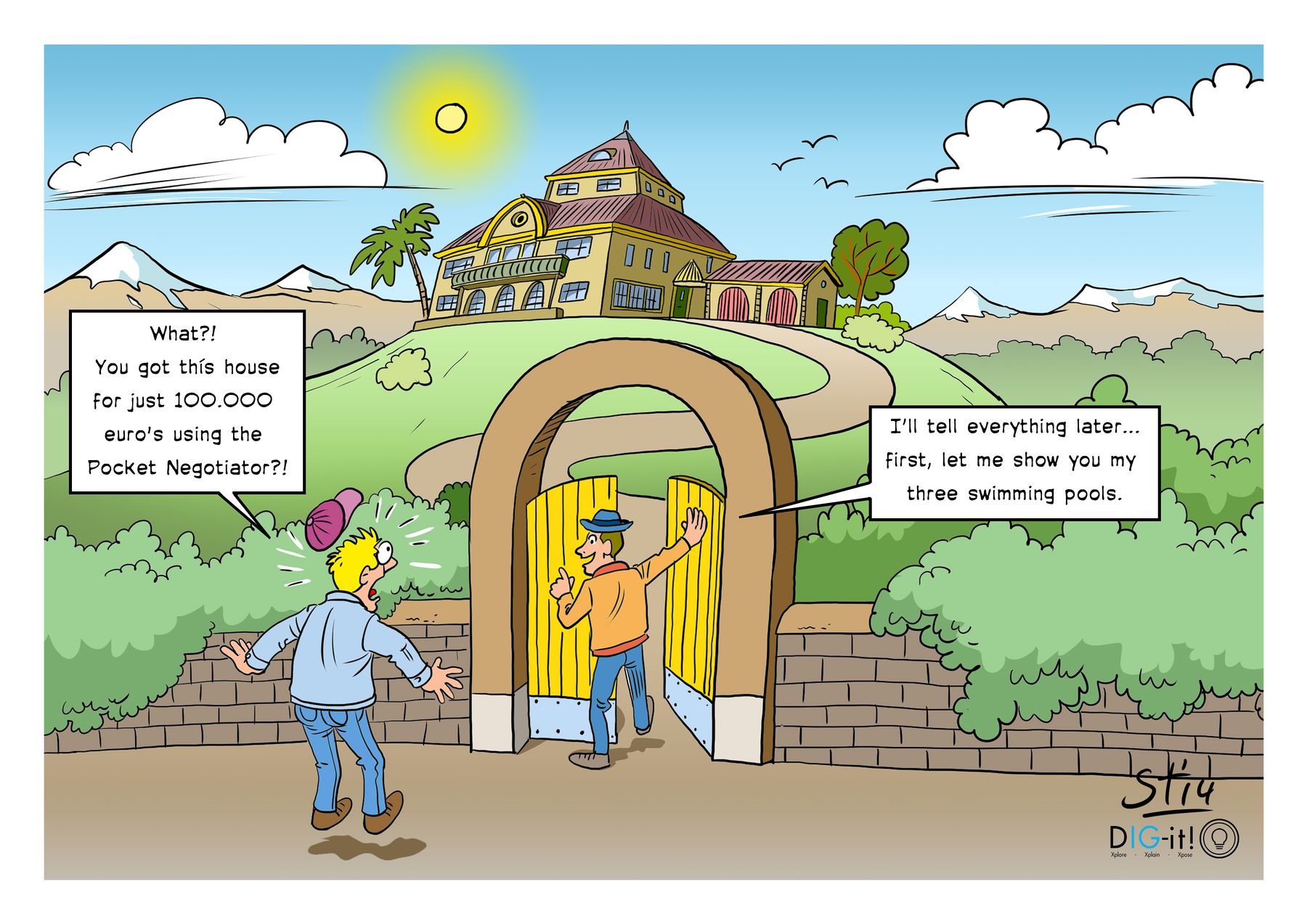Negotiation
Negotiation
Imagine you have just graduated and plan to throw a nice party to celebrate. The problem is that you do not want to organize everything yourself. Fortunately, a friend of yours has also graduated and wants to throw a party as well. You decide to share the load. Your parents will finance the party for an amount of up to 1200 euro. Now, you and your friend may have different ideas of how to spend this money. You might want to spend more on good food, whereas your friend may really want a good band to play. Thus, you have to compromise on how to spend the given amount of money on things such as food, drinks, invitations, music, location etc. Reaching such a compromise will involve negotiation.
Or, imagine you want to buy a house. You have seen a house you really like, and now have to negotiate an agreement with the seller. The first issue that comes to mind is the price, but there may also be other negotiable issues, such as move-in date, furnishings etc. This allows for trade-offs. |
|
Why research in negotiation support?Negotiation is a complex emotional decision-making process aiming to reach an agreement to exchange goods or services. Although a daily activity, few people are effective negotiators. Existing support systems make a significant improvement if the negotiation space is well-understood, because computers can better cope with the computational complexity. However, the negotiation space can only be properly developed if the human parties jointly explore their interests. The inherent semantic problem and the emotional issues involved make that negotiation cannot be handled by artificial intelligence alone, and a human-machine collaborative system is required. We are developing a new type of human-machine collaborative system that combines the strengths of both and reduces the weaknesses. Fundamental in these systems will be that user and machine explicitly share a generic task model. Furthermore, such systems are to support humans in coping with emotions and moods in human-human interactions. For this purpose we will contribute new concepts, methods and techniques. For integrative bargaining we will develop such a system, called a Pocket Negotiator, to collaborate with human negotiators. The Pocket Negotiator will handle computational complexity issues, and provide bidding- and interaction advice, the user will handle background knowledge and interaction with the opponent negotiator. Demo video |

